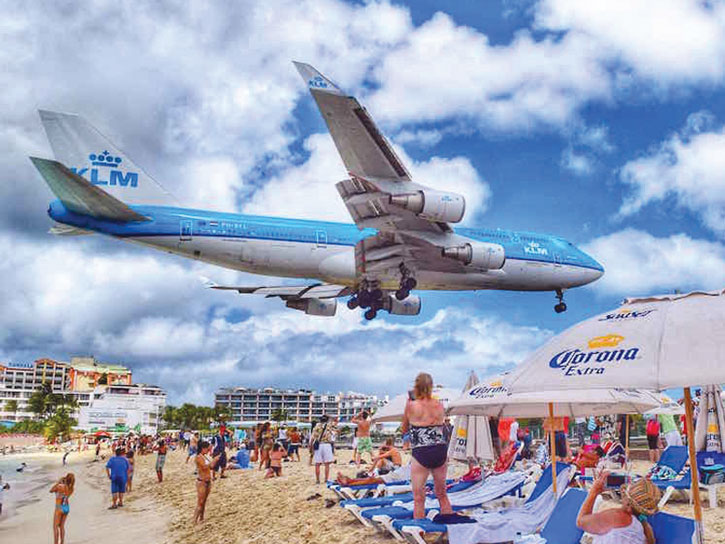On March 23, 2019, nine Caribbean states—all members of CARIFORUM—signed an agreement to preserve trade with the United Kingdom after Brexit. That’s a remarkable achievement given the chaos that has ensued since British voters approved a referendum in 2016 to exit the European Union.
We’re coming up on three years of that tortuous process, and there is still no certainty about what the relationship between the UK and EU will look like. For that matter, the United States has no trade agreement in place with the UK, nor the EU. By contrast, these Caribbean nations knew exactly what they wanted from a post-Brexit world: to duplicate the CARIFORUM-European Union Economic Partnership Agreement with the UK, and that’s exactly what they got.

Brexit Complexities
But the complexities of Brexit go beyond that for some Caribbean countries. Some Caribbean economies are still associated with their European colonizers as protectorates or as integral territories of their mother countries, representing EU outposts in the Western Hemisphere. Such is the case with the island of Anguilla, a British overseas territory, and neighboring Saint Martin, which is split between two European Union states: France in the northern half and the Netherlands in the south.
“Anguilla is heavily dependent upon Saint Martin and Saint Maarten [the Dutch name] for international access, medical services, imports, exports, mail, and a myriad of other goods and services,” noted Anguillan Chief Minister Victor Banks, in an address to his country’s citizens. “The two islands have an entwined heritage that spans centuries.” Even at this late date, what Brexit means for Anguilla, and some other territories in the Caribbean—much the same for the UK-EU relationship—is still up in the air.
Nor does the CARIFORUM-UK trade agreement cover all Caribbean countries. Barbados, Belize, Dominica, Grenada, Guyana, Jamaica, Saint Lucia, St. Kitts and Nevis, and St. Vincent and the Grenadines were the signatories from the 17-member CARIFORUM to the trade agreement with the UK. As in Europe, there are several associations that define the relationship among nations and territories within the Caribbean. In Europe, 28 nations (including, for now, the UK) comprise the European Union, but not all of them use the common euro currency. Still others are part of the European Customs Union, but not the EU, while others are part of the Schengen common border region but not the union.
The situation of the Caribbean nations has its similarities and differences. The Caribbean Community (CARICOM) is an organization of fifteen Caribbean economies that promotes economic integration and a single market agenda, while CARIFORUM is an association of CARICOM members plus the Dominican Republic which are signatories to the Georgetown Agreement. That accord, signed in 1975, created the African, Caribbean, and Pacific (ACP) Group of States, and comprises 79 African, Caribbean, and Pacific nations. CARIFORUM does not include all of the CARICOM territories, and includes one that is not, the Dominican Republic.
UK-Caribbean agreement
The UK-Caribbean agreement is significant because the UK is CARIFORUM’s largest trading partner in the European Union, absorbing around 25 percent of the region’s exports to Europe—including bananas, rum, sugar, rice, processed foods, and methanol. The agreement also provides guarantees by the UK of access to its market for services and investments to the signatory Caribbean countries. Reports indicate that other CARIFORUM members have signaled their intention to sign the agreement in the future.
While CARIFORUM’s proactive stance toward trade with the UK has been admirable, some of the difficulties associated with Brexit are mirrored in the Caribbean. In Europe, a hard border may emerge between Ireland and Northern Ireland (part of the UK) once Brexit is finalized, unless the parties agree to some other arrangement. The same situation may arise between Anguilla and Saint Martin.
Some Anguillians consider Saint Martin to be “downtown Anguilla,” because so many of its population of 15,000 take the 25-minute ferry ride to do business, go shopping, and access healthcare services on Saint Martin, without the impediments of having to cross a border. Saint Martin is not much bigger geographically than the 35 square-mile Anguilla but boasts a much larger population, at 78,000, and economy.
A no-deal Brexit raises the question as to whether borders could soon be going up between these two sun-soaked islands, separated by only five miles of sea, leaving Anguilla in the lurch. Ironically, the internally self-governing Anguilla did not take part in the 2016 Brexit referendum, but its fate may have been decided by voters over 4,000 miles away.
Free movement of goods and people between Anguilla and the two administrations on Saint Martin has been crucial to Anguilla. Around 80 per cent of Anguilla’s economy is based on services, such as offshore finance and tourism, which rely on smooth crossborder flows. EU development aid accounts for as much as $7 million of Anguilla’s budget and the island’s government wants London to replace those funds in a post-Brexit world. But Chief Minister Banks wants the UK to go well beyond that, asking the UK to make hefty infrastructure investments on his island.
“We have put it to the UK Government that Anguilla needs to be put in a position where its reliance on St. Maarten/St. Martin is greatly reduced,” he said. “This we argue can be achieved by providing us with extended and upgraded airport facilities and upgraded port facilities. In the furtherance of this objective, an infrastructural adviser, funded by the UK, has been contracted.
“The UK now has a clear picture of how Brexit may affect Anguilla, [and] what may be required to rectify any foreseeable problems,” he added. Meanwhile, “the intentions of France and the Netherlands for St. Martin/St. Maarten are unclear.”
It has become evident that many in Britain who voted to leave the EU knew little about the union and how it impacted their lives during the UK’s 45-year membership. And, if that is the case, they surely didn’t take into account how their votes might impact the lives of people in the Caribbean, half a world away.





